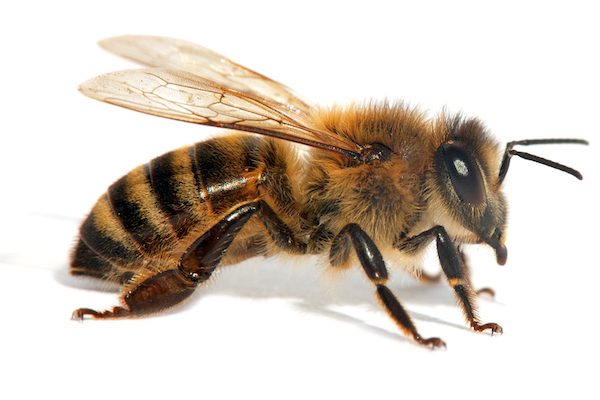Wasp Control and Wasp Nest Removal Canberra & Surrounding NSW
For prompt service and fast results
If you’ve found a wasp nest on your property, particularly a European wasp nest, you need professional wasp control as quickly as possible.
Wasps are not only annoying, preventing you from enjoying your outdoor areas, but they represent a significant health risk – their sting is painful and can cause severe allergic reaction.
Dealing with a wasp nest is a job for professionals as they can be dangerous to treat due to their highly aggressive behaviour. In addition, although some nests can be easily spotted, in other situations it takes skill to locate the nest, especially if it is on a neighbouring property.
Mann’s Pest Control are your local wasp control experts and can ensure your wasp problem is dealt with swiftly and safely, eliminating the nest to prevent the wasps returning.
Professional wasp treatments
During our inspection, it will be helpful to show our team locations of where you have seen wasp activity. This might be a particular area of lawn, around doors and window frames, or near the eaves or roof. These hotspots could be potentially be where the nest is located.
We will undertake a thorough inspection to locate the nest, bearing in mind that European might be several hundred metres away from the home.
If we can locate the nest, we destroy the wasp nest by blowing an insecticide powder directly into the nest. The professional wasp products give instant results – the nest and all wasps present are killed upon contact. Any returning worker wasps will pick up the insecticide when they return to the nest.
Our team will wear suitable protective clothing and will work with you to ensure that the treatment happens at a time when pets and children are safely out of the way.
Warranty: We guarantee we will eliminate the nest causing the problem (but of course there may be more nests in the area).
(For other pests check out our pest control services).
Wasp baits
If the nest cannot be located then we can use a professional wasp bait. Wasps are attracted to the wasp bait and feed on the attractive food matrix. Little do they know it contains a slow acting insecticide. They take the bait back to the nest and spread it to their nestmates, eliminating the colony. This may take a day or two but it ensures a permanent solution to your problem.
Types of wasp in ACT/NSW
The three types of wasp that might build nests near a home are paper wasps, mud dauber wasps, and European wasps. Paper wasps and mud dauber wasps are just two kinds of harmless native wasp species. Their nests are generally small, no larger than the size of a side plate, and they are considered beneficial for the environment.
But when it comes to pest wasps, European wasps are the main source of concern. They are very similar in size and appearance to the native yellow paper wasp but can be identified by their black (rather than yellow) antennae.
European wasp
Native paper wasp
Mud dauber wasp
European wasps
European wasps are native to Europe, Africa and Asia. They were first discovered in Australia around 1960 and are now found in all of the southern states (they don’t survive in tropical, warm climates). They can sting multiple times and can quickly swarm to attack when feeling threatened. Apart from safety concerns, they are considered an agricultural, environmental and urban pest.
As they have no natural predators here (other than humans), European wasp numbers are left unchecked, meaning vigilance is required by homeowners to keep numbers as low as possible.
In their native countries, European wasp nests die over the winter, with only the queen surviving. However, in Australia, European wasps can survive the mild winters. Their nests can continue to grow, creating a major problem the next year. This is another reason why their nests need to be treated immediately.
Bee nests / bee swarms
If you suspect you have a bee problem, we can assist with this too. As honey bees are beneficial, we always advise that you try contacting a apiarist (bee keeper) first, to see if they can remove the nest. Sometimes this isn’t possible and so the nest has to be destroyed for the safety of the homeowners. If you need a bee nest / swarm treated please give us a call.

Top tips to prevent a wasp problem
An effective way to deter wasps from building nests on the exterior of your home is to have a general pest spray treatment in early spring.
During the warmer months, making your home less appealing to wasps means removing easily available food sources. European wasps are predators and scavengers, happily feeding on almost anything from fizzy drinks to rotting meat. Keeping them at bay means keeping things tidy outside.
- When eating outside, cover exposed food and remove empty plates and food scraps when finished
- Clean up drink spills
- Ensure bins have secure, tight-fitting lids
- Keep compost bins well covered
For safety, it is best to drink from a glass or use a straw rather than drinking directly from a can or bottle.
Call the Wasp Control Specialists
Our Services
Opening Hours
Monday: 08:30 – 17:30
Tuesday: 08:30 – 17:30
Wednesday: 08:30 – 17:30
Thursday: 08:30 – 17:30
Friday: 08:30 – 17:30
Saturday: Closed
Sunday: Closed
Contact Us
- (02) 6299 7980
- 0437 133 244
- Karabar, NSW 2620
- service@mannspest.com.au
